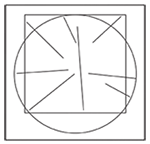SYMPOSIUM
The Human Condition in an other-than-human world
27 November 2015
The first day of the symposium "LIMITS OF THE HUMAN". "THE HUMAN CONDITION" project.
Moderator: Madina Tlostanova
The first day of the symposium "LIMITS OF THE HUMAN". "THE HUMAN CONDITION" project.
Moderator: Madina Tlostanova
12:00 – 12:10
Welcome speech
12:10 – 13:00
Thinking Humans and Worlds: Disturbances and Displacements
Anthony Fry (Australia)
Critiques of the anthropocentric mind and of Eurocentric sensibilities are now profoundly disturbing notions of how 'the human' and 'the world' are dominantly thought and represented. All that was once taken to be certain now increasingly migrates into a deepening condition of complexity beyond contemporary modes of comprehending the complex.
The consequence of this situation in one direction is that contested and displaced categories of thought folds into, and contribute to a broader condition of unsettlement. From this point onward, this condition commences to redefine 'our' present plural spatial-temporal modes of being in, and between, worlds. But from another direction a confrontation with a disjuncture arrives, this between available historically constituted means to describe the worlds of 'human' existence and the actual unsettling nature of encountering and living in these changed worlds.
After unpacking the context outlined three questions will be posed and explored: (i) as a plural being, what are 'we' between? Likewise, (ii) as plural and mobile entities, where in our difference do we existentially exist? And then, (iii) as the disturbed and displaced, can 'we' unmake and remake an ability to imagine other ways to be (that are post-utopian and post-dystopic) in the face of unbounded complexity and deepening unsettlement?
Video
The consequence of this situation in one direction is that contested and displaced categories of thought folds into, and contribute to a broader condition of unsettlement. From this point onward, this condition commences to redefine 'our' present plural spatial-temporal modes of being in, and between, worlds. But from another direction a confrontation with a disjuncture arrives, this between available historically constituted means to describe the worlds of 'human' existence and the actual unsettling nature of encountering and living in these changed worlds.
After unpacking the context outlined three questions will be posed and explored: (i) as a plural being, what are 'we' between? Likewise, (ii) as plural and mobile entities, where in our difference do we existentially exist? And then, (iii) as the disturbed and displaced, can 'we' unmake and remake an ability to imagine other ways to be (that are post-utopian and post-dystopic) in the face of unbounded complexity and deepening unsettlement?
Video
13:00 – 13:40
Tranimacies: Intimate Links between Animal and Trans* Studies
Eliza Steinbrock (The Netherlands)
What are the possible, imagined and visceral moments of intimacy between animal and trans* studies today? Figures of trans* and animal have long been intimately linked in troubling histories of the human/nonhuman interface — specifically shaped by colonialism, capitalism, biotechnology, and the modern medical-scientific industry. I will discuss how contemporary theorists and artworks forge new transanimal alliances through the critical investigation of the "intimate links" of circulating affects that engage multiple bodies, transgender experiences understood broadly, and (human) animals held in captivity and animating theory.
Video
Video
13:40 – 14:20
Social Space – Unsocial Hours
Liina Siib (Estonia)
Here I wish to focus on women at work in contemporary Estonia (we can call its economic conditions and policies post-socialist and/or neoliberal – how much is there chance to choose the "rules of the game") through my camera-based research and work of art. I'd concentrate on the series "A Woman Takes Little Space" and video installation "Unsocial Hours", perhaps something else relevant to see the conditions that determine their working life. And of course, I am interested in possible coalitions, solidarity and trust among men and women, hoping these phenomena not becoming subjects for the Red List of threatened species.
Video
Video
15:20 – 16:10
Decolonial Aesthesis Overcoming the Post/Human
Rolando Vasquez (The Netherlands/ Mexico)
The decolonial thought tries to clarify the dilemma human/posthuman. It wants to free aesthesis from anthropocentrism and technocentrism. It gravitates towards relational life experience, rooted in deep temporalities.
Video
Video
16:10 – 16:50
O, Human Being, Where Are You?
Lewis Gordon (USA/Jamaica)
Somewhere in between what has been and what will be, there is an effort we have come to call "human being." Some humanists have imagined human beings as strong enough to persist without human conditions. And others have argued that human conditions are paradoxically what human beings make. Beyond all this has been the search for the beyond human in ironically human terms. Such is one of the follies of human existence. Yet effort to push the human being into the nonhuman environment has been an ongoing practice as marked by historical dynamics of misogyny and racism furthered by impositions of dehumanized institutions with theological residues of paradoxically secular gods and a domesticated world in which the only "wild" remaining is increasingly certain kinds of human. This talk will focus on these developments through an analysis of a concept that the author calls "cividicy."
Video
Video
16:50 – 17:30
Artist talk: Four, Two, Three
Taus Makhacheva (Russia)
The Sphynx riddle: "Tell me who walks on their four legs in the morning, on their two legs in the afternoon, and on their three legs – in the evening?" The artist will describe her practice within this human progression.
Video
Video
17:30 – 18:20
Discussion
Program and video of the presentations. The second day of the symposium "LIMITS OF THE HUMAN". "THE HUMAN CONDITION" project. NCCA, 28 November 2015.


